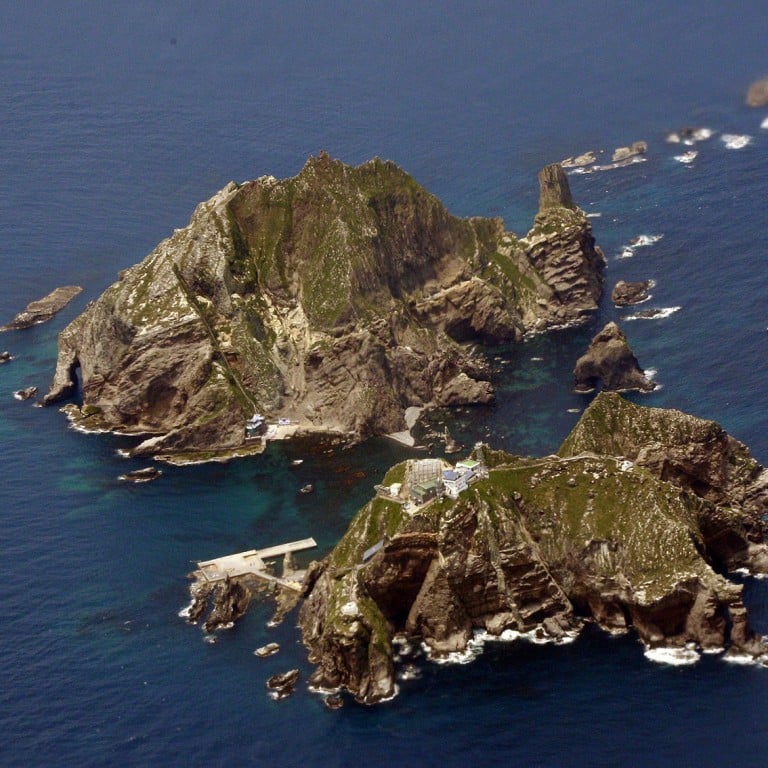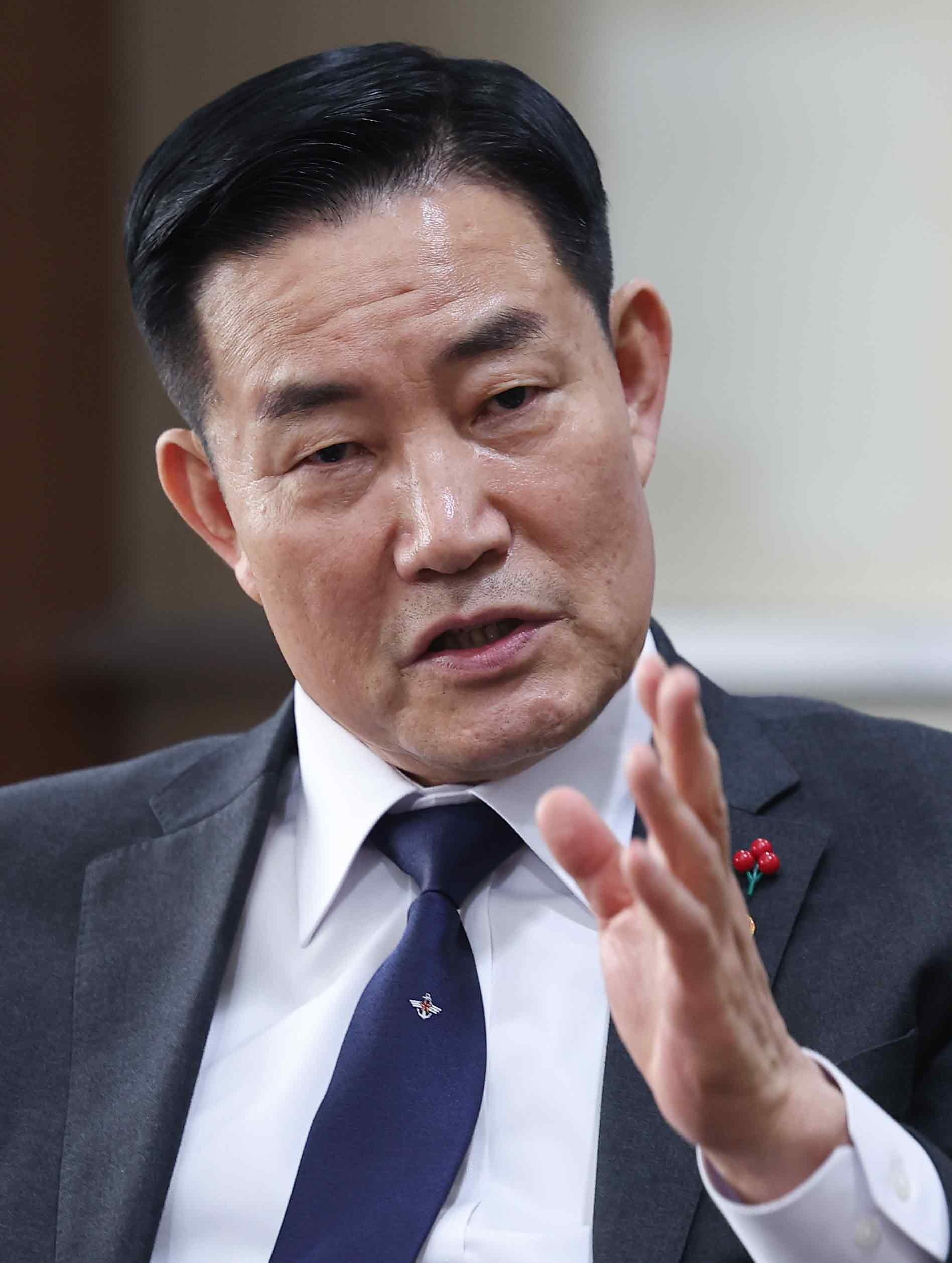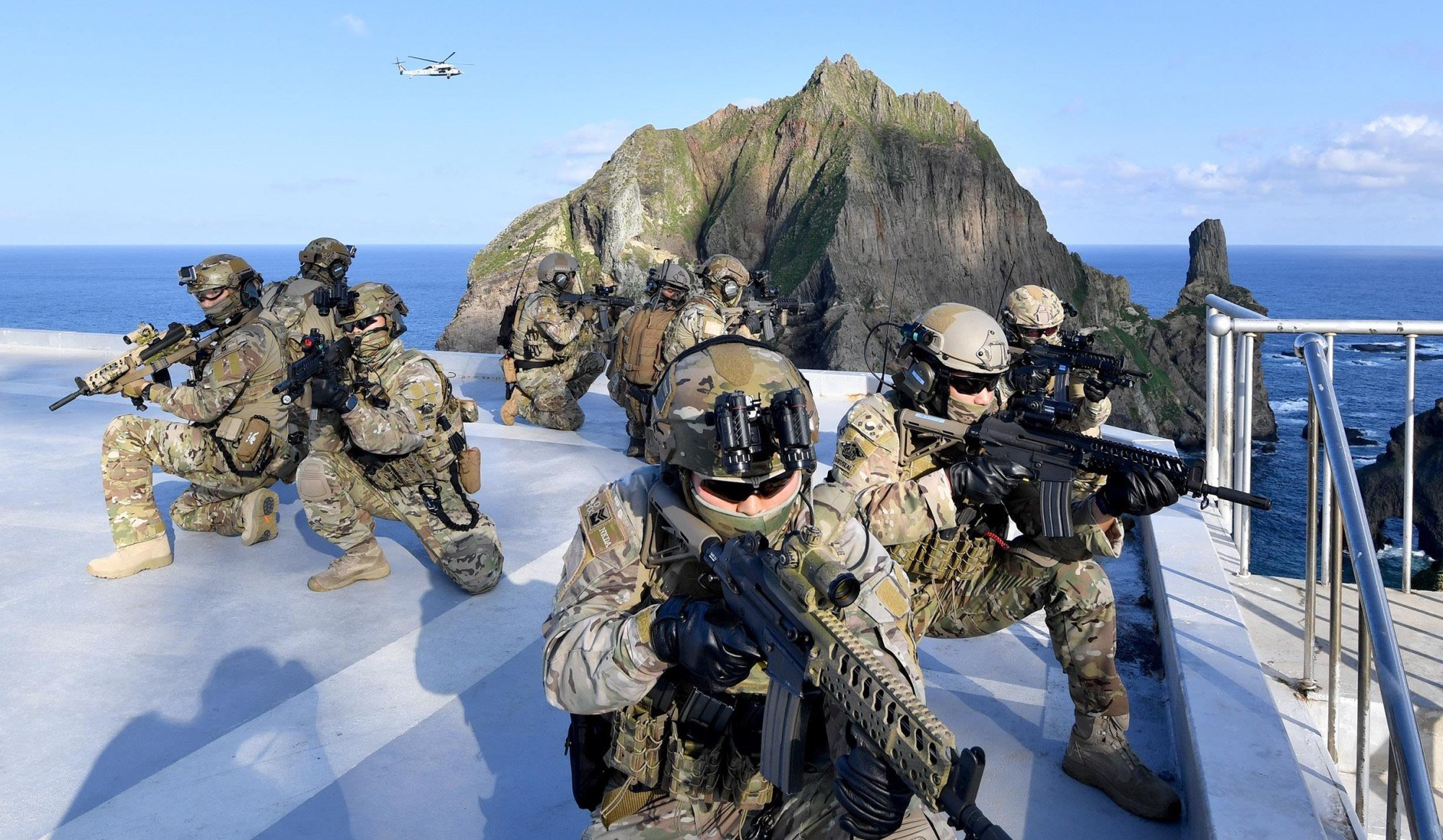
Is South Korea ‘adopting Japanese narratives’ on disputed islets under Yoon?
- The latest flare-up in tensions over Dokdo stems from Tokyo’s top diplomat recently renewing Japan’s claim to what it calls the Takeshima islands
- Yoon’s new defence minister has acknowledged the dispute, in a break from the official line – raising concerns about a pro-Japan ‘undercurrent’
The latest flare-up in tensions over Dokdo, which Japan calls the Takeshima islands, stems from Tokyo’s top diplomat Yoko Kamikawa describing them as “Japanese territory under international law” in a speech she made to parliament last week.
This continued an 11-year-old tradition of Japanese foreign ministers using policy speeches to renew Tokyo’s claim to the islets, but it was given extra political heft by the South Korean defence ministry’s publication in December of a military training booklet that categorised the territory as “disputed” – the first time that Seoul had ever characterised the islands as such.

But this seemingly is at odds with the views of Defence Minister Shin Won-sik, a retired lieutenant general renowned for his extreme conservatism, who acknowledged “territorial disputes regarding sovereignty over Dokdo between Korea and Japan” in a Facebook post he wrote in March last year.
Shin, a People Power Party lawmaker who became defence minister in October, has also criticised liberal politicians of the opposition Democratic Party of Korea for fuelling anti-Japan sentiment based on “outdated animosity towards the long-gone Imperial Japanese militarism”.
Will Japan’s US, South Korea defence pact help unpopular Kishida at home?
Tokyo has long expressed its desire to refer the Dokdo/Takeshima dispute to the International Court of Justice – which would require Seoul’s consent – and is unlikely to abandon its claim to the islets for fear of the knock-on effect it would have on other territorial disputes it has with Beijing and Moscow, analysts say.
“We will continue to see periodic grumbling about Dokdo/Takeshima, but the complaints will quiet down and the status quo will remain,” predicted Daniel Pinkston, a lecturer in international relations at Troy University in Seoul, who said there were “much greater threats and important security issues” to consider.
“The motivations for trilateral security cooperation among Seoul, Tokyo, and Washington are just too great to be upended” by the dispute, he said.
From Tokyo’s perspective, the islands’ legal status is the only remaining unresolved issue among three that have long plagued ties with South Korea, according to Hosaka Yuji, a political-science professor at Sejong University in Seoul.
Seoul needs to take a two-track approach in dealing with Japan, separating the historical issues from the regional security issue
“Amid pressure from Washington to set aside historical issues with Japan, there are concerns here that without resolution, the United States may not fully support South Korea in managing challenges posed by the nuclear-armed North,” Hosaka said.
“Seoul needs to take a two-track approach in dealing with Japan, separating the historical issues from the regional security issue.”

Kim Joon-hyung, a former head of the Korea National Diplomatic Academy, said Tokyo was worried that the current “Japan-friendly” administration of Yoon, who is himself battling low approval ratings, would suffer a defeat in South Korea’s parliamentary elections set for April.
“Both China and Russia appear to be biding their time, taking a wait-and-see approach,” he said. “They are waiting for the next elections to see where the winds blow.”
‘Act of terror’: South Korea’s divisions deepen over Fukushima water dump
However, Hosaka said Tokyo fell short of Seoul’s expectations by not taking steps to contribute financially to the compensation fund set up to address the forced labour issue.
“Government interventions in the human rights issues involving wartime victims of forced labour and sex slavery make their resolution all the more difficult,” he said.
“These actions raise suspicions of an undercurrent within the Yoon government that is in favour of adopting Japanese narratives and promoting them to a domestic audience.”

